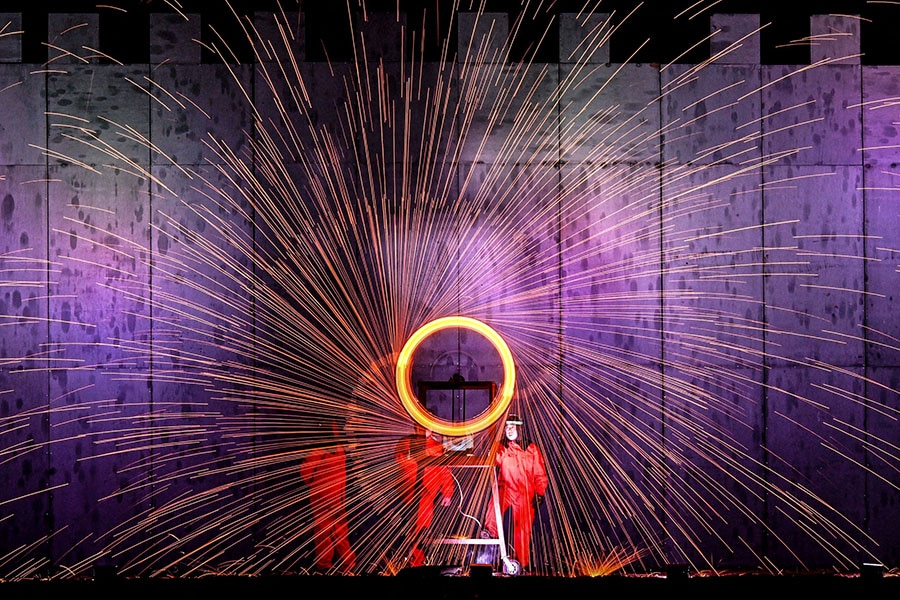
Debate smoulders over beloved Chinese New Year fireworks tradition
In the past, Chinese cities could sound like war zones in the weeks surrounding Lunar New Year, thanks to the centuries-old custom of lighting festive explosives to ward off evil spirits. Nowadays, those booms and bangs have disappeared from many towns
 Performers throw molten metal to create a fireworks diplay during the "Dashuhua" traditional Chinese performance in Handan, in northern China's Hebei province on February 7, 2024, ahead of the Lunar New Year.
Image: STR / AFP©
Performers throw molten metal to create a fireworks diplay during the "Dashuhua" traditional Chinese performance in Handan, in northern China's Hebei province on February 7, 2024, ahead of the Lunar New Year.
Image: STR / AFP©
Sparklers, rockets and spinning sunflowers with flammable petals—the fireworks stores in China's Hangzhou are stuffed with treats for pyrotechnic-loving customers, who count themselves lucky to live somewhere they are allowed to set them off.
In the past, Chinese cities could sound like war zones in the weeks surrounding Lunar New Year, thanks to the centuries-old custom of lighting festive explosives to ward off evil spirits.
Nowadays those booms and bangs have disappeared from many towns over fire safety and air pollution concerns, sparking a debate over heritage and official overreach that has at times ignited into outright protest.
"Fireworks are a tradition passed down from generation to generation. Without fireworks, you feel there's a lack of Chinese New Year atmosphere and happiness," a Hangzhou store owner surnamed Ye told AFP.
This year, with the post-Covid economic recovery still somewhat of a damp squib, authorities keen to keep up morale and boost consumption have signalled a move towards slackening rules.







